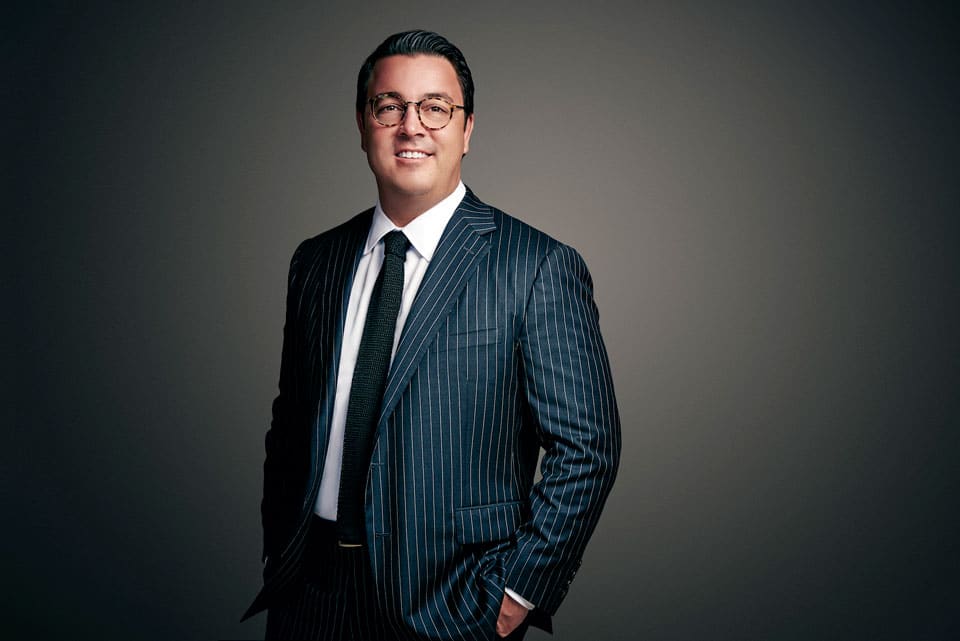Why Founders Get Trapped in a Lifestyle Business

In the boutique professional services industry, there are “young” 10-year-old firms and “old” 10-year-old firms. The difference almost always boils down to the energy level of the founder. If they are energized when they realize that their problems are not theirs alone and seek out collaborative solutions, they tend to prosper. When you understand the nine lifecycle stages and how you need to maneuver through each one, you’ll set your firm up for victory — and avoid founder burnout at the same time.
When it comes to founding a boutique professional services firm, there’s a fine line between running the day-to-day operations of a so-called lifestyle business and aggressively scaling with the intention to sell. I know this from experience, having been the founder and CEO of a management consulting firm from 2006 to 2017 that I have since sold. I had expertise in sales, so the firm experienced rapid growth early. One big-name company after another was hiring our consultancy. We got to break even immediately, and cash flow ramped up exponentially from there.
This rapid success led me to become arrogant. I felt my apparent brilliance and unmatched hard work could make a success out of everything. As a result, I tried to go through all nine lifecycle stages much too quickly. Still in Childhood (stage four), I wanted to become an Adult (stage six) overnight. I attempted to skip the Adolescence stage, ignoring the systems and processes.
As a result, we experienced a crisis by losing some key clients and employees. This hit my pocketbook hard and woke me up fast. My firm was thrown back into Adolescence out of necessity, and I learned that young firms need to go through a trial-and-error period before they attempt to scale. You simply can’t skip the awkward, necessary growth stages.
The professional services industry is one that’s incredibly susceptible to stagnation. These firms can easily become lifestyle businesses because their founders get stuck in one part of the lifecycle instead of growing a service business.
Lifestyle Business vs. Growth Business
Firms can get trapped in the lifecycle and experience stilted growth for a couple of reasons.
First, founders are by-and-large unaware of the lifecycle stages of a professional services firm. Firms are born, grow, age, and die. Second, leadership styles need to change from stage to stage in order to progress successfully. That necessary adaptation usually doesn’t happen. Breakdowns occur during the transition from one stage to another, as founders are not aware of the transitions taking place. Costly mistakes are made. For example, in the early stages, firms need cash to survive; therefore, sales trumps all. However, in the later stages, once survival is not the concern, firms need steady profits. As such, processes and systems need to become the priority.
This lack of lifecycle awareness causes a founder to work too much, not make enough money, and never get to an exit — often leading to founder burnout. This happens because the founder is focused on solving all problems instead of focusing on solving the right problems for the firm’s particular life stage. Much easier said than done, but a founder needs to make the deliberate decision to switch from working harder to working smarter; failure to do so will result in premature founder burnout.
A New Found(er) Perspective
If you find yourself putting out too many fires and feel burnout creeping up as a result, take a breath. This is fixable. As mentioned earlier, it’s all about working smarter and focusing on the right problems for this specific moment. Here are a few recommendations on how to avoid being snagged in the lifecycle churn and get back on track to successfully scale, sell, and exit your boutique firm:
- Know Exactly What Your Stage Entails
Future-thinking founders should anticipate and prepare for problems before they cripple performance. This is best done by determining where they are in the firm’s lifecycle.To figure out the correct stage, ask yourself if an individual is running the firm or if a system is running the firm. If it is an individual, the firm is in a pre-Adolescence stage. If it is a system, the firm is past Adolescence. If it is a little bit of both, the firm is squarely in Adolescence (stage 5), and this marks the need for new leadership to move to the next stage. How agile are you?
In the boutique professional services industry, there are “young” 10-year-old firms and “old” 10-year-old firms. The difference almost always boils down to the energy level of the founder. If they are energized when they realize that their problems are not theirs alone and seek out collaborative solutions, they tend to prosper. When you understand the nine lifecycle stages and how you need to maneuver through each one, you’ll set your firm up for victory — and avoid founder burnout at the same time.
- Embrace the Daily Solving of Problems
When attempting to scale, firms never go from a state of problems to absolutely no problems. It’s never happened and it never will. Firms evolve from one set of problems to the next. Those next problems are more complex and difficult, but you are as big as the problems you contend with, so the correct approach is to match the lifecycle stage of a firm with the skill set of the leader. If you don’t feel capable of solving new problems, it means you need to expand your skill set before your firm can continue to grow. Don’t run from the challenges that arise. Meet them head-on.In my personal journey, I did four specific things to expand my skill set each time I felt stuck. First, I identified a role model — someone you don’t have access to but can study. While in the management consulting industry, I chose the founding father of this industry, Marvin Bower of McKinsey & Co. I then studied him and modeled his behavior.
Second, I developed mentors — which are different from role models because you must have access to your mentor, and they should not have conflicts of interest. Mentors are people who “have been there and done that,” so they helped me avoid paying full price for dumb mistakes. Third, I joined a mastermind community to surround myself with peers. I found much value in being able to bounce ideas off of people who are in a similar situation. And lastly, I had a coach. The coach worked with me intentionally to develop the needed skills. With a team around me, I was able to get outside opinions on what I wasn’t seeing or where I had room to grow.
While the skill you might be lacking depends on what stage your business or firm is at, some of the common things you should learn include dealing with risk, becoming an effective decision-maker (even with incomplete information), building commitment within your team, and the ability to distribute power. As a leader of your business, you will continually be presented with information that may not be complete or accurate, but you still need to make decisions. This is closely related to risk. You will be taking a risk on the decisions you make with available information, but without risk, there is no reward.
Additionally, one of the biggest ways you can help both yourself and your business is to distribute your power and let others wield it effectively. You can’t lead a growing firm all on your own, so you must trust others to help you — and eventually even take the wheel from you entirely.
- Keep Pushing for More
Founders of boutique professional services firms often don’t dream big enough. Many start their firms with a modest level of ambition, anticipating that a nice lifestyle business is the inevitable end goal. They hear that professional services firms don’t scale easily. As a result, they settle instead of actively looking for more.If a founder desires more than a lifestyle business, they must expand their level of ambition and go for it. The path forward is to master the lifecycle stages and learn from peers who are a few stages ahead. Find a community of like-minded entrepreneurs and founders and learn from each other as you stretch to reach those lofty goals.
Founders and operators of firms often come to communities with questions about winning new clients, recruiting star employees, improving pricing, etc. However, the most successful founders come to learn about what might be possible. Yes, they have these problems; however, their dreams and ambitions expand when they meet their peers, many of whom are doing what is thought to be impossible.
Instead of just asking about new clients and pricing, shift your attention from the income statement to the balance sheet — from “how much can I make?” to “how much wealth can I create?” There are millions of founders of professional service firms who make a great living. However, there are few who create real generational wealth. Founders should think like the owners they are, not like an employee.
Avoiding burnout as a founder is hard. Your heart and soul go into cultivating this idea and sharing it with others, but it’s possible to curb burnout by asking the right questions and addressing the problems that fit your firm’s current stage. Sometimes, the best way to do that is by asking more experienced peers.
Written by Greg Alexander.
Have you read?
How Business Intelligence helps executives to make better decisions.
5 Ways Business Leaders Can Uncover an Industry Gap and Find Success by Ryan Stana.
Advantages of telemarketing why marketing calls still work in 2023.
Why Need To Scale Up Your Start-Up in 2023.
CEO Spotlight: Tom Wheelwright CPA, CEO of WealthAbility.
Add CEOWORLD magazine to your Google News feed.
Follow CEOWORLD magazine headlines on: Google News, LinkedIn, Twitter, and Facebook.
Copyright 2024 The CEOWORLD magazine. All rights reserved. This material (and any extract from it) must not be copied, redistributed or placed on any website, without CEOWORLD magazine' prior written consent. For media queries, please contact: info@ceoworld.biz








